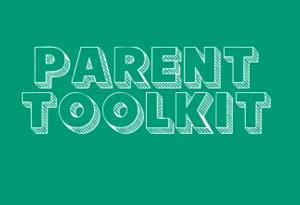System (Organizational) Components
Local education agencies (LEAs) and schools struggle to create family engagement initiatives that are coherent and aligned with educational improvement goals. The following system (organizational) components shape the direction, focus and ensure the sustainability of capacity building initiatives:
- Systemic - purposefully designed as a core component of educational goals such as school readiness, student achievement, and school turnaround.
-
Integrated - embedded into structures and processes such as training and professional development, teaching and learning, and community collaboration.
-
Sustained - operates with adequate resources and infrastructure support. Multiple funding streams are resourced to fund initiatives, and senior level district leadership coordinates family engagement as a component of the overall improvement strategy. School leaders are committed to and haven a systemic vision of family engagement.
Process Components
The following five process components are key to effective capacity building interventions:
- Linked 'to' Learning - initiative must be aligned with school and district achievement goals and connect parents to the teaching and learning goals for the students.
- Relational - a major focus of the initiative is on building respectful and trusting relationships between families and district, school and program staff.
- Developmental - the initiatives focus not only on providing a service, but also on building the intellectual, social, and human capital of stakeholders engaged in the program.
- Collective/Collaborative - learning is conducted in group versus individual settings and focused on building strong networks and learning communities.
- Interactive - participants are given opportunities to test out, practice and apply new skills.
Note: This draft framework is a work in progress and is being provided to the public for information purposes only.
Outcomes
Intended outcomes for LEA and school staff
- Districts and schools cultivate and sustain active and effective partnerships with families, strengthening one of the identified essential supports - parent and communities ties - needed for school improvement.
- District staff, school leaders, teachers, and other relevant school staff:
- Respect and honor families' existing knowledge and their potential contribution to the work of the schools.
- Have the skills, knowledge, and confidence to create welcoming and inviting learning communities for students and their families.
- Demonstrate a commitment to family engagement as a core strategy to improve teaching and learning.
- Engage in initiatives with families that focus on academic achievement and connect families to student learning.
- Work in partnership with families to support and share the responsibility for student achievement and school improvement.
Intended Outcomes for Families
More families are actively engaged in their children's education and school improvement.
A critical mass of families in school communities, regardless of their race/ethnicity, educational background, gender, or socioeconomic status:
- Have developed the skills, knowledge, and confidence needed to negotiate the multiple roles (supporters, encouragers, monitors, decision-makers, advocates, collaborators) of effective family engagement.
- Are actively engaged, from cradle to career, in their children's academic, social, and emotional development.
- Feel honored and respected by school staff
- Work in partnership with school and LEA staff to support and share the responsibility for student achievement and school improvement.
External Resources
The Parent Toolkit resource will help you improve family engagement with learning at home.
Parent Toolkit is a one-stop shop resource that was produced and developed with parents in mind.
